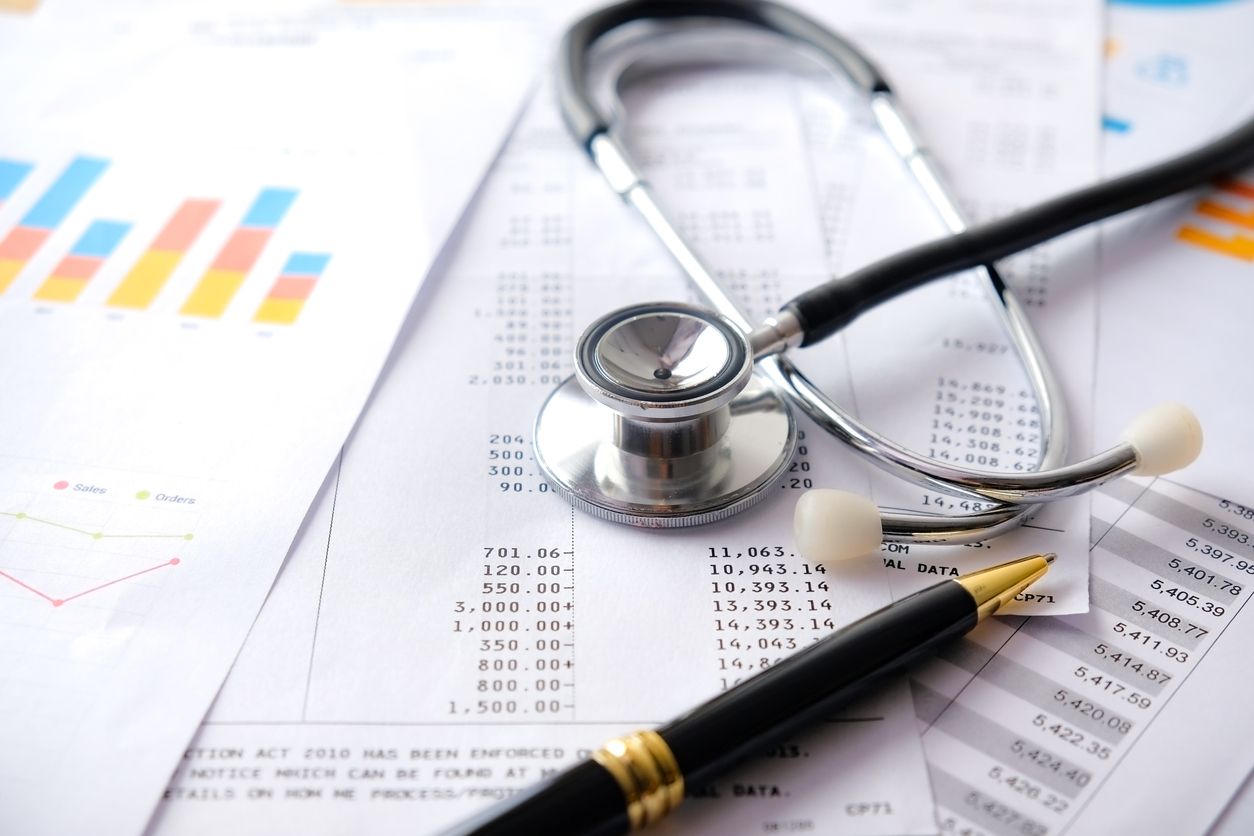
Key Takeaways
-
Even with insurance, medical care is almost always expensive.
-
Almost everyone ends up paying some medical bills out of pocket.
-
Carrying debt in any form can have negative impacts on your credit profile and credit scores.
-
Think carefully before pulling out the credit card to pay your medical bills.
Do you have debt from medical expenses? If so, you’re not alone. An estimated 41% of adults in America have healthcare-related debt, according to a report from the Kaiser Family Foundation. The amount ranges from less than $500 (16% of adults) to $10,000 or more (12%). Some of the debt is owed directly to a medical provider (doctor, hospital, lab, etc.); some is on credit cards.
It’s not hard to understand why. Medical care is expensive. Even the cost of a doctor’s visit can run several hundred dollars. Lab tests can total more than $1,000. And even if you carry good health insurance, there’s no guarantee that it will cover all your costs. Almost everyone ends up paying some medical bills out of pocket.
The decision on how you pay for those expenses can make a big difference in your financial health.
Paying your provider directly
When you get a bill from a provider and pay that provider directly, you may not realize that choice comes with a number of protections and options. If you find you can’t pay a bill, you can take these steps.
1. Dispute any problems. It’s a good idea to review your explanation of benefits (EOB) statements that list out details of what services you received and at what costs. If there’s any question, or you suspect an error, you can call the provider’s billing department – or your insurance company – for more information and to resolve issues.
2. Ask for help upfront. If you need to visit an out-of-network provider, or if you don’t have health insurance, ask for a cash-payer price before you even have your appointment. Most providers have established these prices, and some may charge the discounted fee that Medicare or Medicaid pays.
3. Contact the billing coordinators at the doctor’s office, hospital or other facility when their bill arrives. Be open and honest, and explain your situation. Many will be willing to work with patients with payment plans. Some may even negotiate the total amount due. In some states, there are even laws requiring hospitals to offer free or lower-cost services to those who qualify.
4. Seek additional help. Most insurance companies and hospitals have case workers on staff to help patients with payment issues. It could be help in understanding an invoice, estimating costs for a needed procedure or suggesting ways to deal with payment issues.
5. Contact local charitable foundations, churches, community groups or government agencies. They often can help people in need who owe providers.
Credit protections
Carrying debt in any form – on a credit card, or with a medical provider or other business – can have a negative impact on your credit profile and credit scores. But credit reporting agencies don’t include medical collections under $500 or paid medical collection debt on consumer credit reports. That means that if the debt you owed to a medical provider went to collections, and you subsequently paid it off, it will just appear as “paid.”
In addition, it takes a year before a medical debt in collections is reflected on someone’s credit report.
Paying with a credit card
In contrast, if you decide to use your credit card to pay, that amount is no longer technically “medical debt.” It becomes just “credit card debt.” If you’re sure you can pay off the charge in full, on time, when it appears on your statement, great. If not, though, you’ll be paying regular credit card interest rates. As of this writing, the average credit card rate was about 18%.
Once you put a charge on a credit card, it’s money you owe to your credit card issuer, not the provider. You’ll be unable to go back to the provider and negotiate a payment plan or get other help from their billing departments. And you won’t receive any of the new credit protections.
So, the next time you pay a medical bill, consider your options and the benefits of arranging payment directly with providers. Think carefully before pulling out the credit card.
Navigating the health csare system in America can be exhausting. Your best strategy in dealing with the costs and paperwork should be to stay in front of it all. When you start getting phone calls and emails, it could be too late.
The blog articles published by Unlock Technologies are available for informational purposes only and not considered legal or financial advice on any subject matter. The blogs should not be used as a substitute for legal or financial advice from a licensed attorney or finance professional. Links in our blogs to third-party websites are provided as a convenience and for informational purposes only; they do not constitute an endorsement of any products, services, or opinions of the corporation, organization, or individual. Unlock bears no responsibility for the accuracy, legality, or content of the external site or for that of subsequent links.
The blog articles published by Unlock Technologies are available for informational purposes only and not considered legal or financial advice on any subject matter. The blogs should not be used as a substitute for legal or financial advice from a licensed attorney or financial professional. Links in our blog posts to third-party websites are provided as a convenience and are for informational purposes only; they do not constitute an endorsement of any products, services or opinions of the corporation, organization or individual. Unlock Technologies bears no responsibility for the accuracy, legality, or content of external sites or that of subsequent links.



